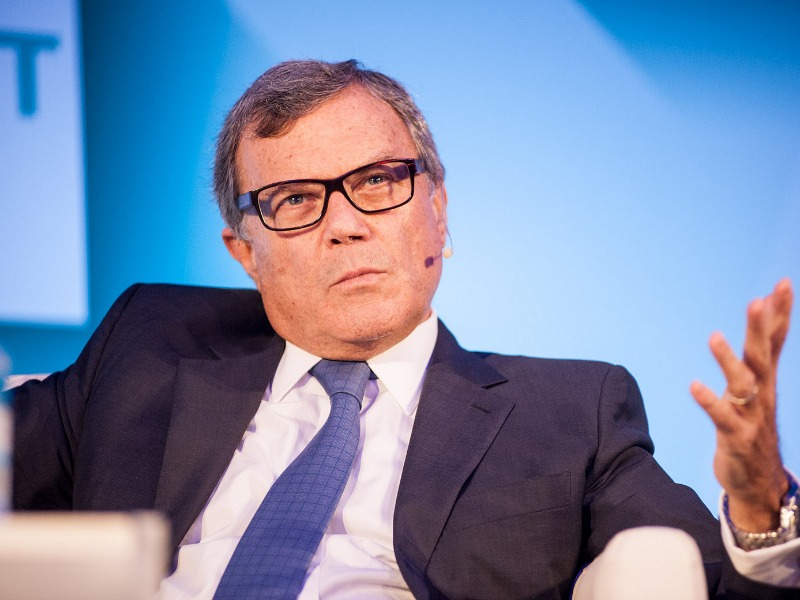Arun Sudhaman 04 Mar 2016 // 9:19AM GMT

LONDON — WPP has reported that its PR and public affairs firms, which include Burson-Marstelller, H+K Strategies, Ogilvy PR and Cohn & Wolfe, grew revenues by 3% on a like-for-like basis in 2015, to £945m.
On a reported basis, revenue grew by 6%, with the group's PR firms delivering a profit margin of 16.7%, up from 15.8% in 2014.
WPP CEO Sir Martin Sorrell noted that the PR performance was driven by "a stronger second half and even stronger quarter four." PR net sales were up 3.4% on a like-for-like basis in 2015 to £929m, accounting for 8.8% of total group earnings.
"Constant currency revenue grew 8.2% in quarter four with like-for-like net sales up 5.8%, with strong growth in all regions, but particularly in the United Kingdom, Latin America and the Middle East & Africa," said Sorrell.
In particular, Sorrell singled out Ogilvy PR and Cohn & Wolfe for praise, along with specialist PR and PA businesses in the US, UK and Germany. However, the group's two biggest PR firms — Burson-Marsteller and H+K Strategies — were "less buoyant."
"An improving top-line and good control of costs resulted in the operating margin improving by 0.9 margin points to 16.7% and by 1.0 margin point in constant currency," added Sorrell.
Ogilvy PR CEO Stuart Smith noted that his firm had returned to high single-digit organic growth after four years of flat returns. "We dramatically bounced back," he said, adding that Asia-Pacific was a major contributor. "It was driven by integrated work, new business performance, and existing client growth."
Cohn & Wolfe CEO Donna Imperato, meanwhile, said that she was "very proud that our evolution into an integrated marketing agency has fueled our second year of double-digit growth globally."
"We’ve seen significant increases across our core consumer, healthcare, corporate and technology practices, much of that growth coming from strong client demand for more digital and content work," said Imperato. "We’ve had outstanding new business momentum in Q1 so 2016 should be another great year."
Overall, the group reported a 6.1% revenue increase for 2015 to £12.2bn, but struck a note of caution. "Despite this strong performance, the always on, Don Draperish general industry optimism seems misplaced," said Sorrell. "To survive in the advertising and marketing services sector, you have to remain positive, indeed optimistic, seeing the glass half-full and industry and company reports generally continue, understandably, to reflect that attitude.
"However, general client behaviour does not reflect that state of mind, as tepid GDP growth, low or no inflation and consequent lack of pricing power encourage a focus on cutting costs to reach profit targets, rather than revenue growth," continued Sorrell. "In addition, there seem to be little, if any, reasons for an upside breakout from the current levels of real or nominal GDP growth, which remain stuck around 3% to 4% and below the pre-Lehman trend rate, which by definition was unsustainable."
Sorrell pointed to "geopolitical issues" as the area of greatest concern to business leaders, including the Ukraine crisis and sanctions; continued tensions in the Middle East and North Africa; the prospect of a Brexit; and concerns about China and Brazil, despite his bullish nature on both markets.
All of these, along with other "grey swans" such as US monetary policy and and falling oil prices, are contributing to a continued client focus on cutting costs, said Sorrell, with legacy companies under pressure from "disruptors like Uber and Airbnb" at one end, and "cost-focused models like 3G or JAB in fast moving consumer goods and Valeant and Endo in pharmaceuticals" at the other.
"Whilst in the middle, towering above you, you have the activists led by such as Nelson Peltz, Bill Ackman and Dan Loeb, with a perception of stressing short-term performance – maybe they need a marketing campaign to establish they really are long-term?" said Sorrell. "Not surprising then, that corporate leaders tend to be risk averse. The average 'life expectancy' of CEOs is around six to seven years, CFOs around four to five years and CMOs two years. No wonder conservatism rules."
Sorrell added that he saw "little reason, if any, for this pattern of behaviour to change in 2016, with continued caution being the watchword."


































.jpg)

















